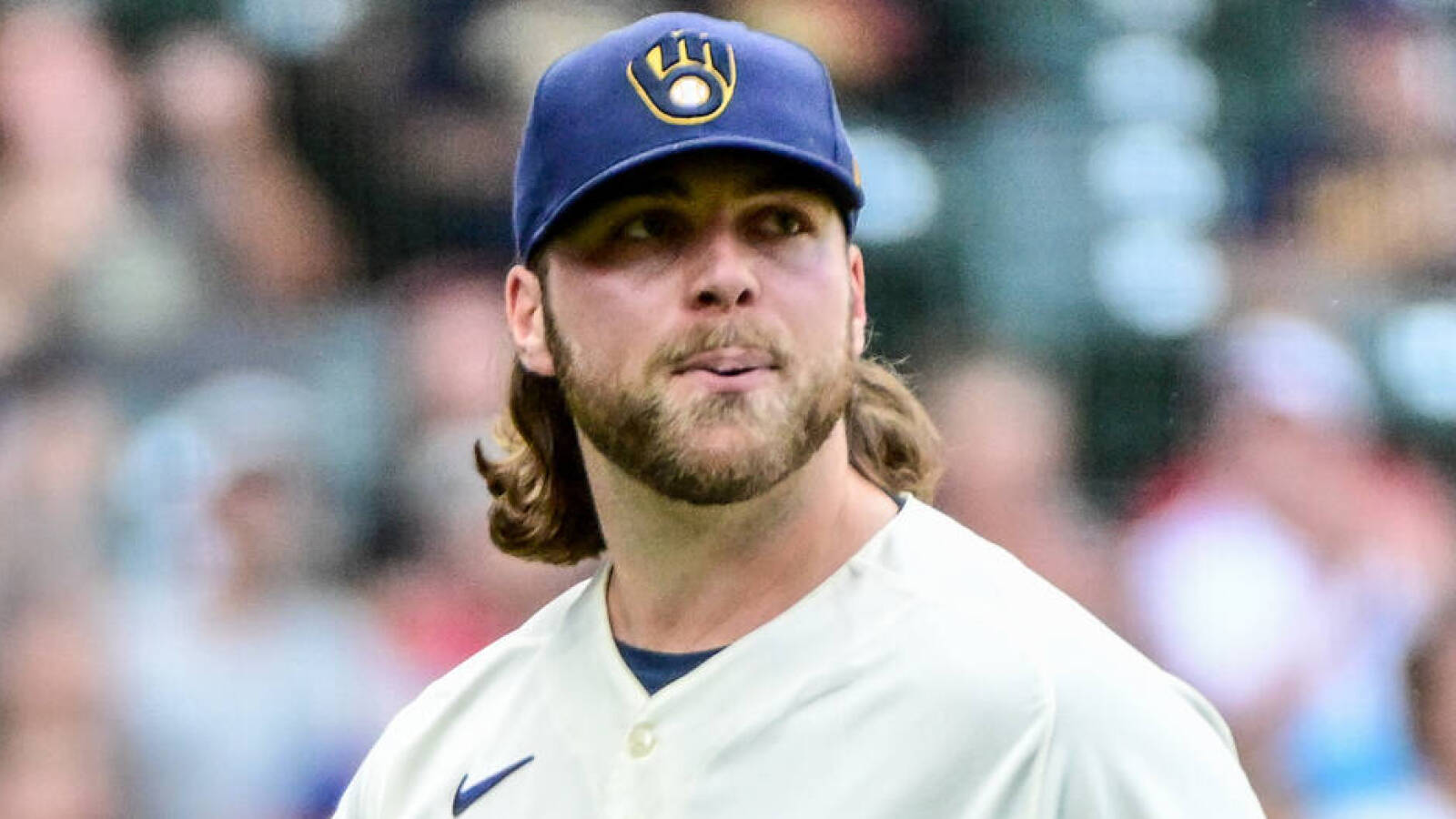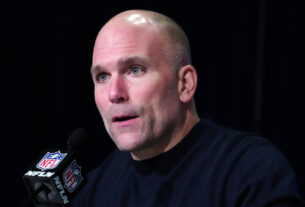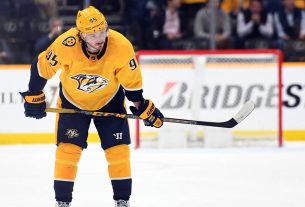Brewers ace Corbin Burnes lost his arbitration hearing against the team this week and, upon being asked about the process in Brewers camp today, offered a rather candid assessment of the hearing (Twitter
links, both with video, via Todd Rosiak of the Milwaukee Journal-Sentinel and Adam McCalvy of MLB.com). The two-time All-Star and 2021 NL Cy Young winner expressed “disappointment” not in the loss itself but in the way the team approached negotiations and conducted itself during the trial. Most troubling for Brewer fans is that, asked specifically about his relationship with the team, Burnes admitted that damage had indeed been done.
“There’s no denying that the relationship is definitely hurt,” the right-hander said. “There’s really no way of getting around that. Obviously, we’re professionals and we’re going to go out there and do our job. Keep doing what I can every fifth day that I go out there. But some of the things that are said, for instance, basically putting me at the forefront of why we didn’t make the postseason last year — that’s something that probably doesn’t need to be said.”
Burnes made clear that the Brewers did not, at any point, attack his character or disparage him as a person, but the implication was still that lines were crossed in the back-and-forth of the trial. Moreover, the 28-year-old was disappointed with the team’s lack of effort to avoid a trial at all.
“The Brewers never made a real attempt to try to come to a deal to avoid a hearing, at least from our perspective” Burnes explained. “…Even up until the days before, there were some phone calls back and forth, and basically it just came out that we were going to end up going to a hearing. That was kind of how it ended. I think we saw from the deadline day that we were going to end up at a hearing, just with the lack of attempts to get a deal done. It’s unfortunate that it ended up that way.”
The team, Burnes said, made a late but “pretty poor” two-year offer. However, MLB.com’s Adam McCalvy reports that said offer wasn’t even a guaranteed deal to buy out Burnes’ final two arbitration seasons, but rather a one-year deal with an option. Such contracts aren’t considered straight one-year deals by “file and trial” clubs, as the presence of an option prevents them from being cited as data points in future hearings.
Burnes’ candor upon being asked about the matter is simultaneously refreshing and fascinating — and, for Brewers fans, likely infuriating. (MLBTR readers are encouraged to take a few minutes to watch the entirety of his comments in the video links above to grasp the full scope of his comments and the issues he took with the team’s approach.) The typical line following arbitration hearings is that they’re “just business,” and while many players surely feel that way, Burnes’ comments are a reminder that there’s a personal component to the process and, at the end of the day, the teams are dealing with human beings.
For instance, the right-hander notes that his hearing was scheduled on Valentine’s Day, meaning he spent the majority of the day on a plane or in the trial, only making it home to see his wife around 11pm. He also spoke of the seven years he’s spent rising from the draft to his current status, calling it “tough to hear” some of the things that the team brought to its case against him. “They won [the hearing],” Burnes said, “but when it came down to winning or losing the hearing, it was more than that for me.”
It bears emphasizing that Burnes was asked to open up about the hearing and didn’t necessarily head to camp looking to broadcast any ill feelings toward his longtime employer, but the fact that he was willing to do so in a public setting speaks to the personal stakes that can come into play in these often contentious hearings. It’s a large reason that all parties are typically motivated to avoid going in front of an arbitration panel, though a handful of cases to reach this juncture every year.
The $750K gap that separated the Brewers’ $10.01M submission and Burnes’ $10.75M figure is generally considered peanuts for MLB clubs; that’s scarcely more than the league-minimum salary under the new collective bargaining agreement, and the fact that a team will go to a trial and risk just this type of alienation to save relatively trivial sums is often a point of consternation among fans.
We’ve explored the team perspective with regard to arbitration here at MLBTR in the past, pointing out that clubs take hard lines and are willing to go to trial more due to down-the-road implications than immediate, present-day savings. Making a concession on a $750K sum to keep Burnes happy, in a vacuum, seems like an easy call. But if every club took that approach and acquiesced on the small gaps in arbitration, those concessions would become data points for future arbitration cases, and arbitration salaries would spike in fairly rapid fashion. That explanation doesn’t necessarily lessen the frustration among fans and likely only increases it among players, but the simple fact of the matter is that hardline tactics like this generally work. Dontrelle Willis’ $4.35M salary as a first-time arbitration-eligible pitcher way back in 2006 stood as a standard for first-time arbitration-eligible pitchers for upwards of 15 years, for instance, despite escalating revenues and player salaries throughout the league.
Indeed, the Brewers released a statement of their own on the matter, praising Burnes as a leader and a vital cog for their team. Said general manager Matt Arnold:
“The arbitration process always presents uncomfortable situations for both the club and player involved. It is never easy to present a case against a member of the Brewers family. I’d like to reiterate that we view Corbin as one of the leaders of our franchise and value him as an elite talent in the game. Corbin is a major contributor to the organization both on and off the field, and we look forward to another outstanding season from him in 2023.”
The club’s intentions notwithstanding, Burnes clearly doesn’t feel as though those comments are in alignment with the manner in which he was characterized in the trial. Teams will go to great lengths to win an arbitration hearing, but it’s still eye-opening to hear that the Brewers’ argument in any way linked their postseason miss to Burnes’ performance; Burnes made 33 starts, pitched to a 2.94 ERA and actually had better results against teams with winning records (2.82 ERA) than he did against sub-.500 clubs (3.09 ERA). That includes a masterful 1.29 ERA and 32-to-4 K/BB ratio in 28 innings against the NL Central champion Cardinals.
There’s no indication that any bad blood between Burnes and the team will lead to a trade or prevent Burnes from accepting an extension offer, if the Brewers make a long-term offer to his liking. At the same time, it’s certainly telling to hear such open levels of frustration and disappointment from a star-caliber pitcher with free agency looming after the 2024 campaign. The resultant chip on Burnes’ shoulder could serve as extra motivation both in 2023 and in arbitration again next season, but the Milwaukee ace made clear that he doesn’t plan to dwell on the hearing and will shift his attention to the upcoming season.
“At the end of the day, it’s disappointing, but you’ve got to get past it,” said Burnes. “Obviously, now the focus is playing baseball, and going out and doing what I can for the teammates and the fans.”



